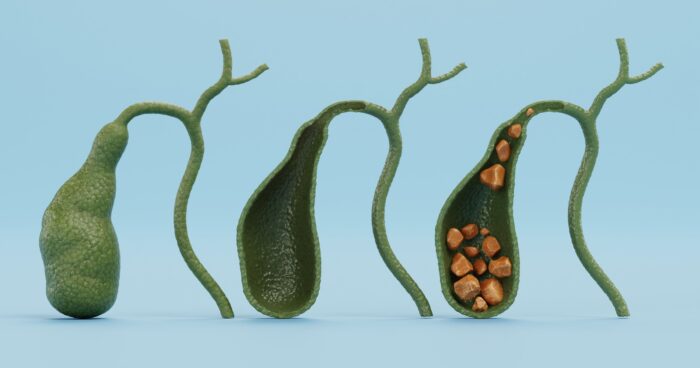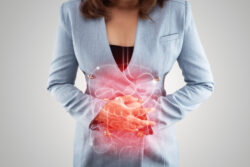How To Know If I’m Having a Gallbladder Attack?
The gallbladder is such a strange thing. Its purpose is to store bile and help with digesting food. However, if the gallbladder develops gallstones that inhibit the digestive process, men and women can feel pain, from minor discomfort to an excruciating level. And what makes gallbladder issues even more frustrating is that a person can have gallstones in their gallbladder but not experience any discomfort for a long time, but then, seemingly out of nowhere, the pain hits like a ton of bricks.

Obviously, if you experience any pain or discomfort in your body, from your back to your chest to the upper right part of your abdomen, you will want to have a physician evaluate your body to determine the cause of your issues. However, to help alleviate any worry that you may have about why you feel uncomfortable, especially after eating food, this blog will explain the ways you can tell if you are experiencing a gallbladder attack from gallstones.
What Does a Gallbladder Attack Feel Like?
Gallbladder issues can range from mild to severe, depending on the size and blockage of the gallstones. In severe cases, your gallbladder may actually rupture. Though this is extremely rare, it can be fatal, which is why it is important to identify gallbladder issues and have them treated as soon as you can. Some men and women with gallbladder issues may only experience some discomfort in their abdomen; however, other men and women with more severe cases may have high levels of pain and/or fever, nausea, vomiting, and yellow skin and eyes. Some people have even mistaken severe gallbladder attacks with heart attacks. Some other common symptoms may include:
- Discolored urine (usually a brownish color)
- Pale stool
- Pain that spreads to your right shoulder or back
- Feeling of fatigue
- Irritability of the abdomen
Why Do Gallbladder Attacks Happen?
Though the exact cause of gallstones is not completely understood, the leading theory is that these stones develop due to a chemical imbalance in the gallbladder. This imbalance is created by the foods we eat. If your diet consists of foods that are high in cholesterol and saturated fats, such as fatty meats, butter, high salt, refined grains, and high-fat dairy products, then there is a higher chance of gallstones forming.
How to Prevent Gallbladder Attacks?
Understanding your triggers can help reduce gallbladder discomfort and attacks. For many people, this means sticking to a diet that is high in fruits and vegetables and low-fat dairy products as well as grains, and lean protein. You also want to make sure that your diet is high in fiber and calcium. Not everyone experiences the same discomfort with the same types of food, so it is vital to learn what your body can and cannot handle. However, a common type of food that tends to affect many people with gallbladder issues is spicy food.
Regardless of your pain levels, if you experience any discomfort, then it is extremely important that you seek a professional opinion. Dr. Moore is a board-certified general surgeon who specializes in gallbladder and hernia issues. There’s no reason to continue living with pain, so call and schedule your consultation today!
For more information about gallbladder surgery, please contact Patrick Moore MD, FACS by calling 951-477-5700.




